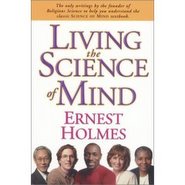-------------------------------------------------------------------------------
From the Nag Hammadi Library, James M. Robinson.
In this gospel Christ teaches that sin is not a problem of moral ignorance so much as a manifestation of imbalance of the soul. Christ then encourages the disciples to spread his teachings and warns them against those who teach of spirituality as an external concept rather than as an internal, gnostic experience. Mary, to whom this text is credited, then lifts the hearts of the disciples who have become despondent over Christ's departure. Peter and the other disciples acknowledge Mary's spiritual calibre and superiority and yet they challenge her when she describes her own gnostic experiences. This confrontation between Mary and Peter is well documented in many gnostic Scriptures. Mary exposes the small mindedness and superficiality of Peter and Andrew who find it difficult to comprehend, let alone accept, the deeper spiritual understanding that Mary has acquired through her personal experience and closer relationship with Christ. Indeed Peter and Andrew seem to prefer the very thing against which Christ warned them - a religion based on arbitrary ideas (in this case represented by Peter's male chauvinism and Andrew's ignorance). And yet many of their ideas have shaped modern Christianity while, paradoxically, Mary Magdelene's spirituality, which here seems more consistent with the teachings of Christ, is unheard of today.
"Will matter then be [destroyed] or not?". The Saviour said, "All natures, all formations, all creatures exist in and with one another, and they will be resolved into their own roots. For the nature of the matter is resolved into the (roots) of its nature alone. He who has ears to hear, let him hear."
Peter said to Him, "Since you have explained everything to us, tell us this also: What is the sin of the world?" The Saviour said, "There is no sin, but it is you who make sin when you do the things that are like the nature of adultery, which is called 'sin'. That is why the Good came into your midst, to the essence of every nature, in order to restore it to its root." Then He continued and said, "That is why you [become sick] and die, for [Š] of the one who [Š He who] understands, let him understand. Matter gave birth to a passion that has no equal, which proceeded from (something) contrary to nature. Then there arise a disturbance in the whole body. That is why I said to you, 'Be of good courage', and if you are discouraged (be) encouraged in the presence of the different forms of nature. He who has ears to hear, let him hear."
When the blessed one had said this, He greeted them all, saying, "Peace be with you. Receive my peace to yourselves. Beware that no one lead you astray, saying, 'Lo here!' or 'Lo there!' for the Son of Man is within you. Follow after Him! Those who seek Him will find Him. Go then and preach the gospel of the kingdom. Do not lay down any rules beyond what I appointed for you, and do not give a law like the lawgiver lest you be constrained by it." When He said this, He departed.
Wednesday, May 17, 2006
Subscribe to:
Post Comments (Atom)




No comments:
Post a Comment